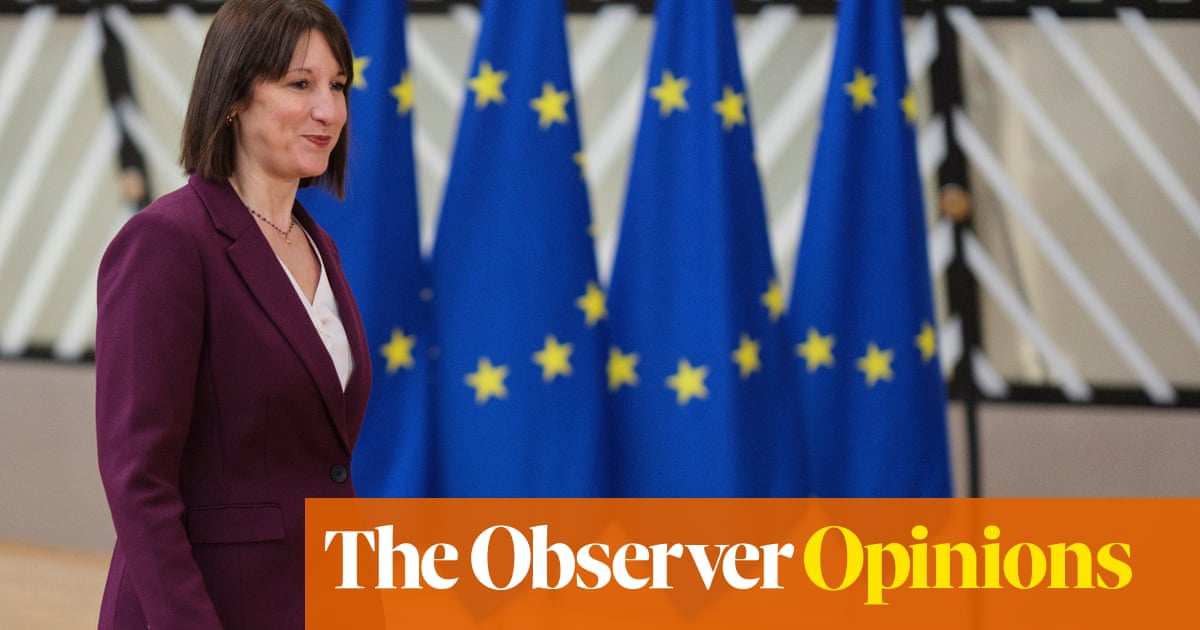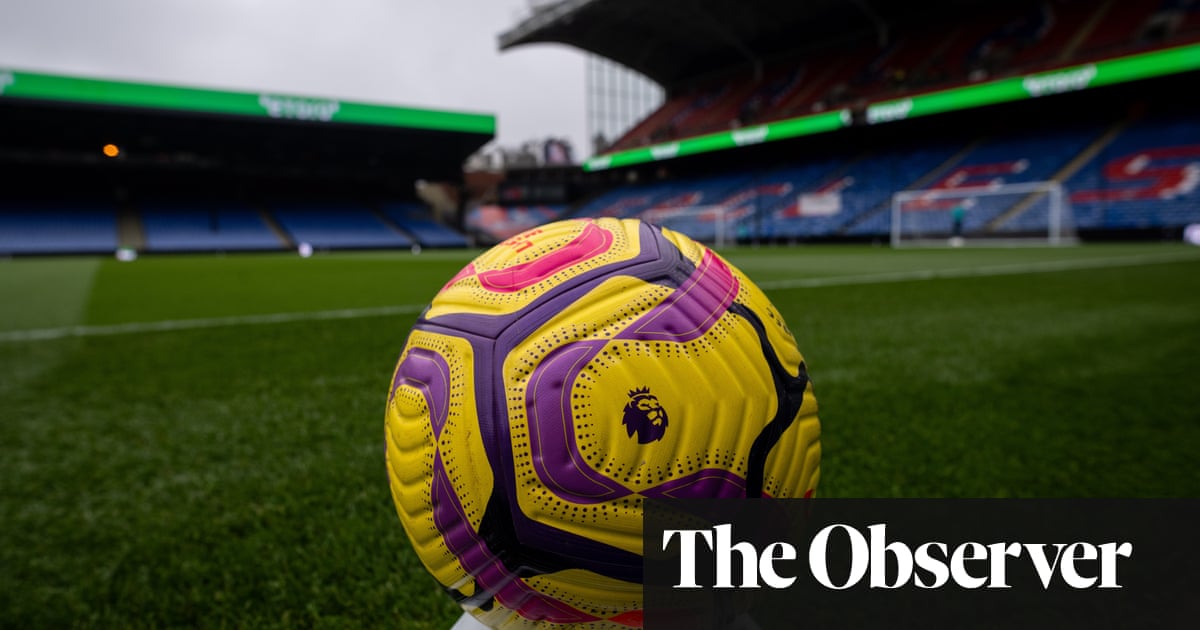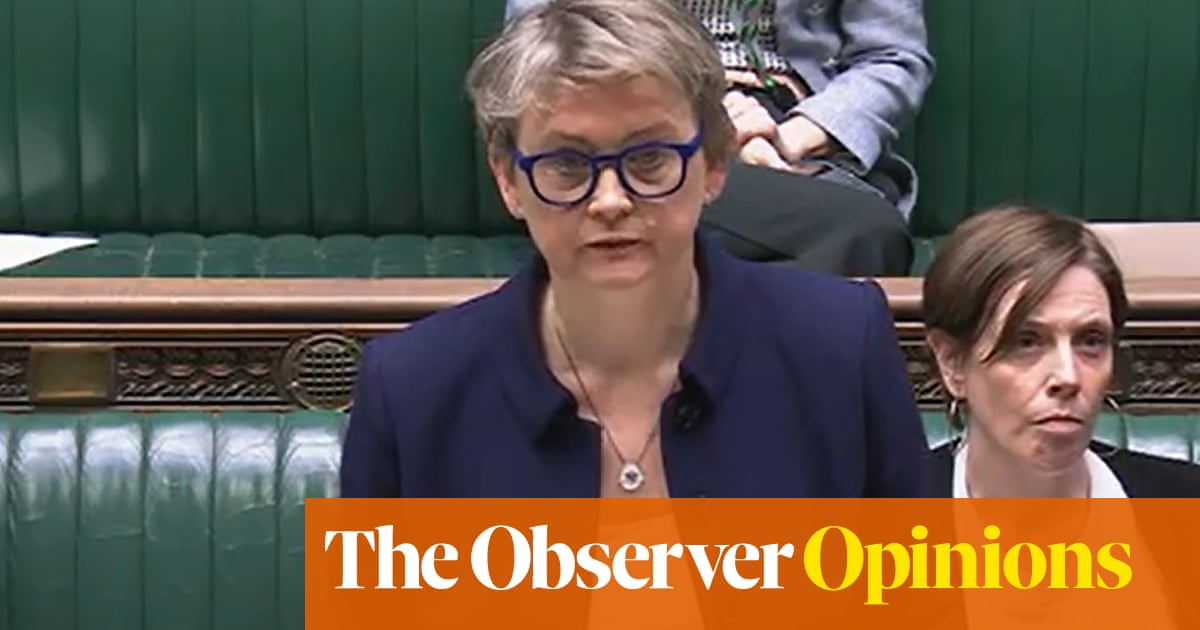Clipboard in the centre, team sheet at the front and Rowntree’s Randoms to the right. Pien Meulensteen likes everything to be in the correct place and jokes that her commentary setup is almost as meticulous as Rafael Nadal’s water-bottle arrangements.
Most striking is what is on the clipboard: carefully crafted notes, printed on sticky paper using a document template she formatted to ensure everything fits precisely. The substitutes’ details, attached to a monitor to the left, flap gently in the Arctic-temperature wind, and as each one is brought on, that player’s sticky note is carefully placed on top of the player they replaced.
After having the chance to observe Meulensteen commentating on the Women’s Super League match between Manchester United and Liverpool, it is remarkable how frequently she recalls the information without needing to glance down. “If you think about it a bit too much, you can get jumbled up,” she says.
“I’ve learnt to relax and think: ‘What will be will be, enjoy the game,’ and trust in my own abilities that the words will come to my mind.” She says she can spend up to two days preparing her notes for a match, despite knowing she is likely to use about 15% of them.
Meulensteen sounds like a seasoned veteran but at 27 she is young for somebody who has commentated on a men’s World Cup, the Premier League and become Sky Sports’ main WSL commentator. It is a career path that has evolved rapidly for the University of Salford graduate and came unexpectedly.
“Commentary was never something I really ever thought I was going to get into. I used to think: ‘How do people do this? How do people talk for that long and know what to say?’ I remember saying to my dad: ‘I don’t think I’m good enough to do this.’ And he said: ‘Where do you want to be in five years’ time? Where do you want to be in 20 years’ time?’ We’ve always done this. Even when I was younger, he would write a ladder for me. ‘Is it going in the direction you want?’ Yes, then go through that door and see what happens next. Now I’m here.”

Meulensteen, who has also worked for Match of the Day, BBC Radio 5 Live, the American broadcaster CBS and DAZN, is the daughter of the former Manchester United first-team coach and Fulham manager René Meulensteen, and part of a proud footballing family alongside her older brother Joppe, an assistant coach at Stockport County, and younger brother Melle, who plays for Sampdoria. She doesn’t mind having a famous dad: “I’m really proud of what he’s done for football, it’s nice, and, if for the rest of my life I’m known as ‘René Meulensteen’s daughter’ I don’t mind. I’m not too bothered about becoming a big household name for myself.”

She was born in the Netherlands but spent several early childhood years in Qatar, while René coached the country’s youth side in the 1990s and clubs including Al-Ittihad before moving to Manchester United, so working at the 2022 World Cup felt like going full circle. However, to assume that Pien’s rapid career rise is the result of family connections would be a mistake. She has put in the hard yards since studying broadcast journalism and being “really desperate just to get a BBC badge!”.
Like many aspiring sports journalists, she was unsuccessful with her first job application, for a BBC Sport trainee scheme, but she kept in touch with BBC Radio Manchester and slowly began to climb the ladder, starting as a broadcasting assistant, booking guests, producing and then driving the desk on top of university lectures. The relaunch of Manchester United’s women’s team in 2018 led to work at MUTV, which said: “We like your voice, just give it a go.”

Meulensteen’s co-commentator for Sunday’s 4-0 United victory is the former England, Leeds United and Doncaster Rovers Belles winger Sue Smith, who is about as easy-going, friendly and approachable a person as you could wish to meet, and the pair have a relaxed, conversational style on air together, as they bounce on their toes to keep warm.
A production team have been on site since 6am, having spent the previous day at the stadium rigging equipment, laying miles of cabling, and testing the more than 100 audio channels involved in a live broadcast of this nature. They have nine cameras providing different angles and a team back at Sky Sports’ base in Osterley, west London, from where a director and a producer speak into Meulensteen’s ear throughout the match. They spend hours packing up and will do it all again next Sunday when Liverpool host Arsenal in the WSL. The broadcaster agreed a new five-year deal six weeks ago, alongside the BBC, to broadcast almost every WSL match for the next five years.
after newsletter promotion
“Being part of the Sky WSL team, it’s been so nice to see the improvement of women’s football coverage and how seriously they take it,” Meulensteen says. “The games are getting more unpredictable and more exciting … I can be biased but I think we do a really good job covering the WSL and it’s an appropriate time to have that longevity.”

There is one more item on the desk in front of Meulensteen: a large green water bottle, although she often has to think about how much to drink. “Stamford Bridge and here at Leigh Sports Village are two of the only gantries that have a toilet for the gantry, which is honestly a godsend. This might be a bit TMI but at most stadiums you have to go on the concourse and there are hundreds of people trying to go at half-time so you can’t go. You can be standing up for four hours. And I’ve had it before where it’s just men’s toilets and you ask ‘Where are the women’s toilets?’ And people can’t answer. It’s getting better, but I’m really happy about Stamford Bridge’s unisex gantry toilet.”
Such obstacles may not be as obvious to men, and there are other distinct differences for a female commentator, especially online, where sexist remarks remain prevalent. So much so that, when Meulensteen first broke into commentating on the Premier League, she sought help, having seen her brother receive abuse after missing a penalty.
“He ended up deleting his Instagram. Us broadcasters get similar as well. It’s actually really difficult. I had therapy for it for a year because I really struggled. With me, it happened so quickly, the jump from doing local radio to then going on national TV and millions of people listening to your voice, when my first Premier League game I think I was only 24, 25.
“I remember, doing my first commentary, I looked at my phone, thought: ‘I wonder if anyone is saying anything,’ looked through YouTube comments, ‘Oh this person said I sounded great’ and I sent it to the family. And both of my parents and my brothers were like: ‘Stop that now, do not look at the comments … the people you work for, will tell you if you’ve done a good job.’ I very quickly learned to not look. In the end I just turned my social media private, which is a shame, but the one person who wants to say something negative just ruins it. You have to protect your own peace.
“People have the right to have their opinion and tweet whatever they want to tweet but also I have the right to not see that. I’m just trying to do my job. I’m still young, I’m still learning, and I will still be learning for the next 20 years hopefully.”

.png) 1 month ago
10
1 month ago
10













































